Truth, Lies, and Outsider Art: A Profile of Greg Bottoms
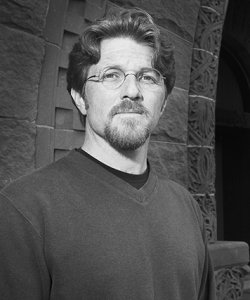
Greg Bottoms has demonstrated that the truth is rarely black and white in all three of his books of creative nonfiction, but never more vibrantly than in his latest, The Colorful Apocalypse.
Jump to navigation Skip to content
Articles from Poet & Writers Magazine include material from the print edition plus exclusive online-only material.

Greg Bottoms has demonstrated that the truth is rarely black and white in all three of his books of creative nonfiction, but never more vibrantly than in his latest, The Colorful Apocalypse.
Oh that mine enemy were to write a book. It’s a line, paraphrased from the Book of Job, that was uttered last Friday morning at BookExpo America by Christopher Hitchens—author of the recently published book God Is Not Great—as the motto from his earlier book reviewing days. It was an odd sentiment to be heard at a panel called “Ethics in Book Reviewing: The More Things Change…?” but it certainly made the crowd, which was packed in and spilling out of the conference room, laugh out loud. And it set the tone for the rest of the panelists’ comments.
It’s not what most people expect from a book conference. There are no scholars huddled together discussing the latest piece of literary fiction that is keeping them up late at night; no gangs of poets arguing about who will make up the future canon of Western literature. Instead, what people found at this year’s BookExpo America, held last weekend at the Jacob Javits Convention Center in New York City, was actress Julianne Moore (really her), America’s Test Kitchen host Christopher Kimball (really him, but not quite as exciting as Moore), the cast of Pirates of the Caribbean (look-alikes, pretty good), Borat (another look-alike, not so good), and the Knight Bus from the Harry Potter series.
It was Saturday morning and Matthew Sharpe was late, but for a good reason. The author of Jamestown was supposed to be signing copies of his book in the autographing room of BookExpo America (BEA), but he’d just been named a finalist for a Quill Book Award, part of a program organized by NBC Universal and Reed Business Information that honors books in nineteen different categories at an awards show televised on NBC. Sharpe was busy being interviewed for MSNBC.
Best-selling novelist Jonathan Lethem has stepped into the copyright spotlight with an unusual proposal that he hopes will make the industry think differently about copyright protection and how it's used.
For eight years readers have anticipated Nathan Englander’s follow-up to his wildly successful debut story collection. With the publication of The Ministry of Special Cases, the wait is over.
An author makes what many would consider the ultimate professional sacrifice in the name of writing and rediscovers how to spend his time offline.
Balancing parenting with a career is a challenge for any professional, but for writers, it can require a fresh outlook on life.
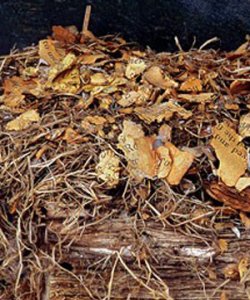
Sample art from Bookworm, a collection of photos and collages of books destroyed by nature.
Literary MagNet chronicles the start-ups and closures, successes and failures, anniversaries and accolades, changes of editorship and special issues—in short, the news and trends—of literary magazines in America. This issue's MagNet features Ohio Review, New Ohio Review, the Atlanta Review, and HoboEye.
On Demand Books, a New York City–based company founded in 2003, has installed the first beta versions of the Espresso Book Machine, a freestanding device that receives orders through a computer for particular titles and publishes the books within minutes.
Small Press Points highlights the happenings of the small press players. This issue features Coffee House Press, Alice James Books, City Lights Booksellers and Publishers, Graywolf Press, and Salt Publishing.
Page One features a sample of titles we think you'll want to explore. With this installment, we offer excerpts from Chemistry and Other Stories by Ron Rash and Music for Landing Planes By by Éireann Lorsung.
Those lucky enough to have tickets to “A Believer Nighttime Event” on Saturday, part of last week's PEN World Voices Festival of International Literature, received program notes that contained a list of the night’s proceedings, complete with short descriptions and estimated times (“Introduction, Eric Bogosian commences the evening in his fashion, seven minutes, thirty-four seconds”), as well as bios of the seven participants.
Novelist and professor Ann Pancake gives advice on how to evaluate criticism of your work.
Fort Tilden is near the end of the Rockaway Peninsula in the borough of Queens, New York, a collection of modest, wind-whipped buildings between playing fields and driveways, not far from the beach. On April 22 it hosted the first Rockaway Literary Festival, organized by Stuart Mirsky. “The Rockaway Literary Festival was something I’d always thought about when I was working,” said Mirsky, who ran for State Assembly of Queens County, New York, in last November’s election. His loss—to Democrat Audrey I. Pheffer—was disppointing, but it freed him up to work on more literary projects.
This year’s annual Story Prize ceremony, held on Wednesday, February 28, at the New School’s Tishman auditorium in New York City, marked the award’s third year and an evening that is fast becoming an established literary event.
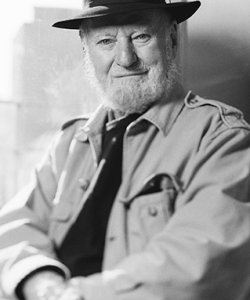
An interview with poet Lawrence Ferlinghetti about the Beat generation, City Lights Bookstore, and Ezra Pound.
In ten years, Tom Bissell went from being a directionless dropout to the acclaimed author of four books.
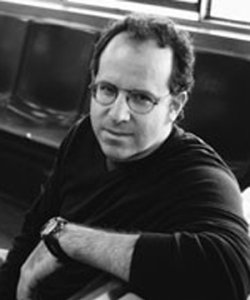
In his new novel, Jamestown, small press superstar Matthew Sharpe turns to history—sort of.
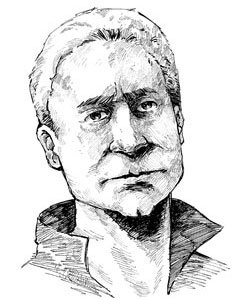
Controversy surrounds Tupelo Press and its 2006 Dorset Prize after allegations of unfairness emerge from contest participants.
Taking their cue from the film industry, in which a well-produced trailer is infinitely more valuable than a print advertisement or press release, commercial publishers such as HarperCollins and Houghton Mifflin are taking advantage of new technology to offer promotional videos on their Web sites to augment their traditional publicity campaigns.
Small Press Points highlights the happenings of the small press players. This issue features Steerforth Press, Zoland Books, Zoland Poetry, MacAdam/Cage, and Counterpath Press.
Literary MagNet chronicles the start-ups and closures, successes and failures, anniversaries and accolades, changes of editorship and special issues—in short, the news and trends—of literary magazines in America. This issue's MagNet features Document, Doubletake: Points of Entry, Interim, and Poetry Salzburg Review.
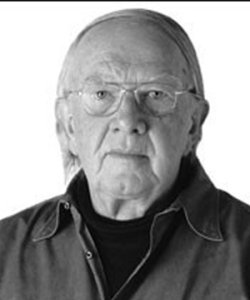
Ed Ochester, editor of the Pitt Poetry Series for nearly three decades, talks about the changes in poetry and publishing he's seen over the years.